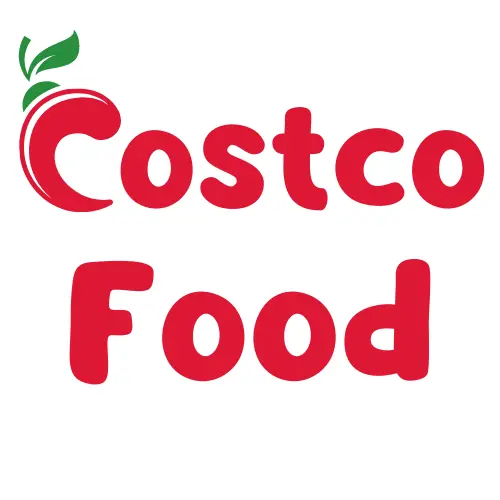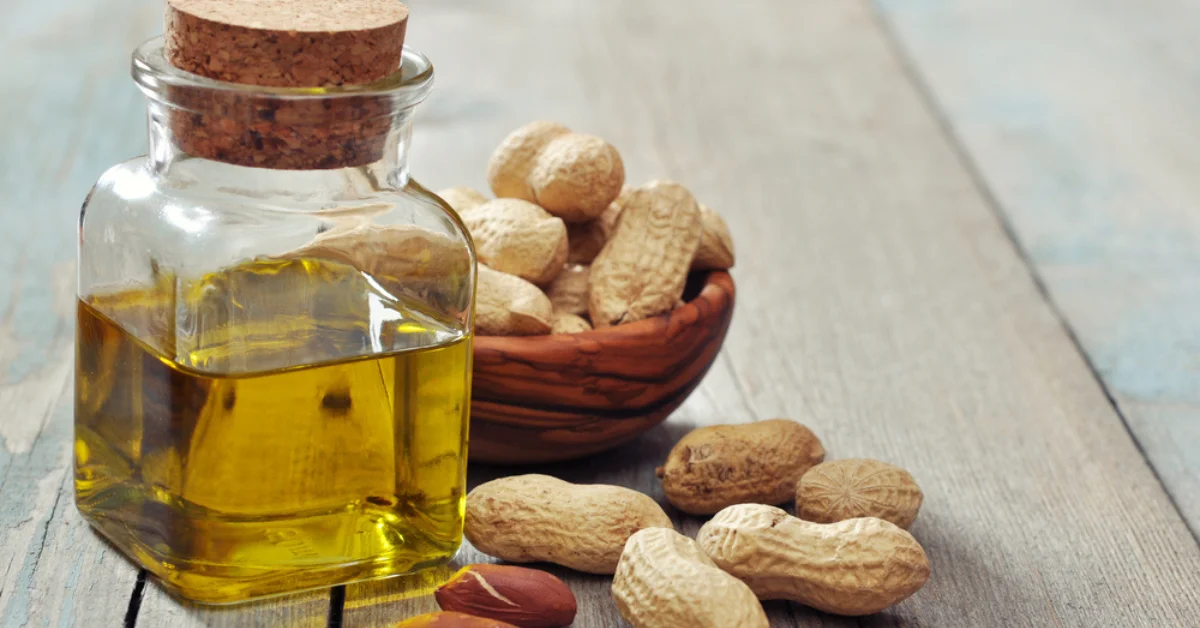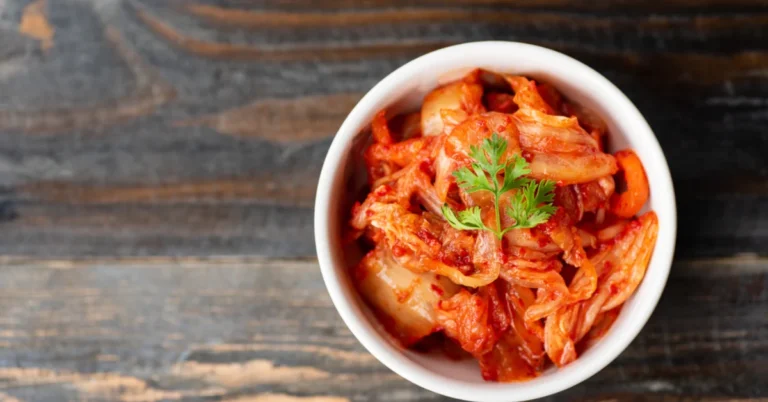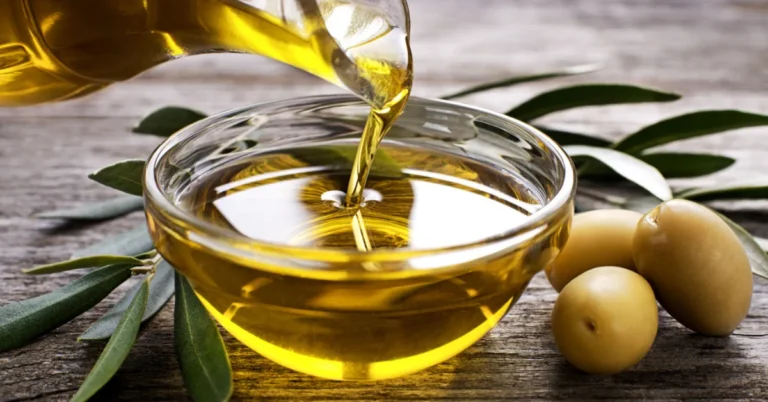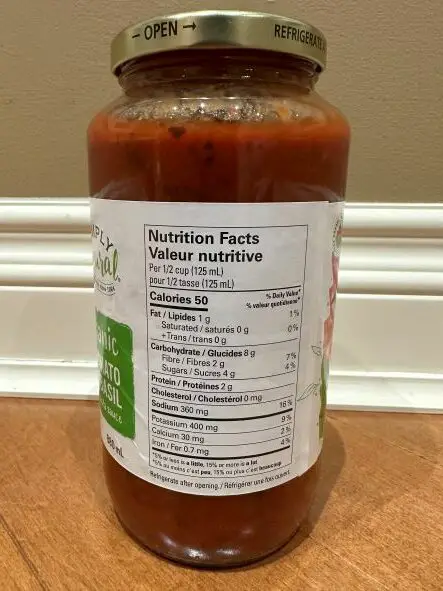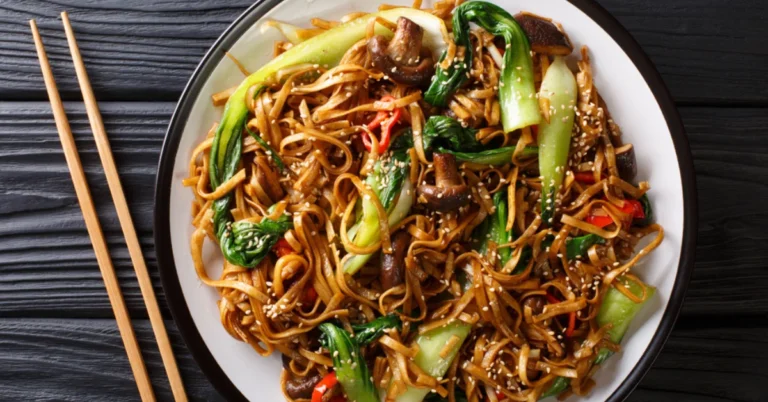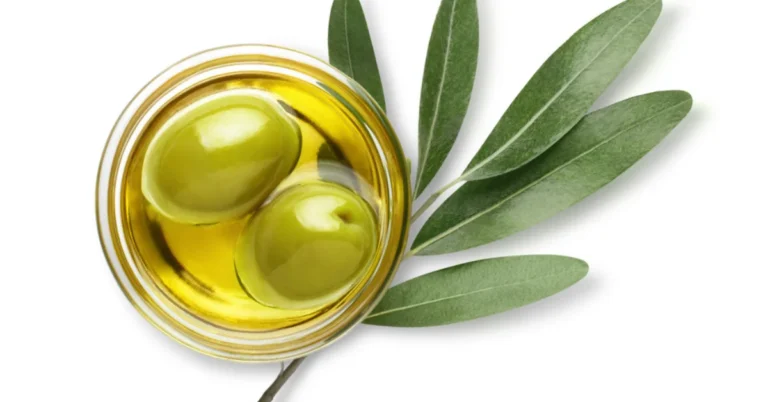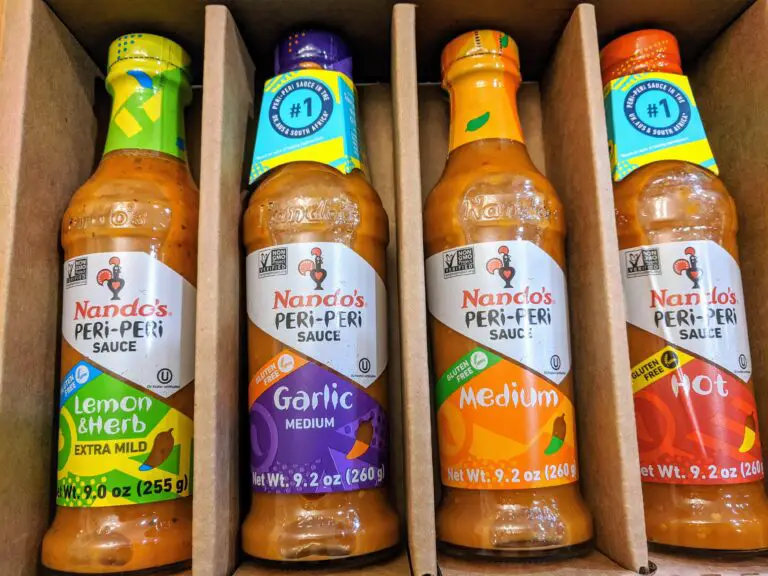Kirkland Peanut Oil Review: Unveiling Top Cooking Secrets!
Kirkland Peanut Oil is praised for its quality and value. The oil’s neutral taste makes it ideal for frying and cooking.
Kirkland Signature’s 100% pure Peanut Oil is a popular choice among culinary enthusiasts, known for its high smoke point which makes it perfect for high-heat cooking. The oil is versatile in the kitchen, favored for frying, sautéing, and grilling without overpowering the flavors of the food.
Consumers often choose Kirkland Peanut Oil for its affordability without compromising on quality. It offers a sizable quantity at a cost-effective price—a hallmark of the Costco Kirkland brand. This oil is also a staple for those preparing dishes that require a stable oil that doesn’t add any unwanted taste, ensuring the final dish tastes as intended. With health-conscious customers in mind, it’s important to note that peanut oil is naturally cholesterol-free, which is an additional selling point.
Introduction To Kirkland Peanut Oil

Credit: www.amazon.com
Welcome to the delicious world of Kirkland Peanut Oil, a premium choice for chefs and home cooks alike. This introduction will unwrap the secrets of this kitchen staple.
Why Kirkland Stands Out
Kirkland Peanut Oil captures attention with its exceptional quality and versatility in cooking.
- Extracted from high-quality peanuts.
- Offers a high smoke point, ideal for frying.
- Lacks strong flavor, letting dishes shine.
Kirkland’s commitment to excellence translates to a pure, unadulterated product that enhances any recipe.
Peanut Oil In Culinary Arts
In the culinary arts, peanut oil is a star. It’s known for enduring high temperatures and giving fried foods a crispy finish.
Here’s why cooks love it:
- Seals in juicy flavors.
- Makes crunchy textures possible.
- Stays clear, keeping fried items golden.
With Kirkland Peanut Oil, culinary creations from deep-fried delights to sautéed specialties all come out spot-on in taste and texture.
Unpacking The Basics
Exploring the world of cooking oils can transform your kitchen experiences. Kirkland Peanut Oil emerges as a top contender worth your attention. Let’s dive into its unique aspects and nutritional values to understand why it stands out from the rest.
What Makes Peanut Oil Special?
Peanut oil, referred to by chefs as a gold standard for frying, makes an impression with its high smoke point and subtle flavor. A high smoke point means it can reach high temperatures without burning. This oil brings out the best in your foods without any overpowering taste.
Here are the key features of peanut oil:
- High Smoke Point: Ideal for deep-frying and sautéing.
- Long Shelf Life: Keeps well over an extended period.
- Mild Flavor: Enhances natural food flavors without competing.
Nutritional Profile Of Peanut Oil
Kirkland Peanut Oil’s nutritional profile is worth noting. It offers vitamins and minerals essential for a balanced diet. Its composition includes healthy fats that are good for heart health.
| Nutrient | Amount per Serving |
|---|---|
| Calories | 120 |
| Total Fat | 14g |
| Saturated Fat | 2.5g |
| Polyunsaturated Fat | 4.3g |
| Monounsaturated Fat | 6.2g |
| Vitamin E | 2.1mg |
Each serving of peanut oil provides heart-healthy mono and polyunsaturated fats. These fats help maintain good cholesterol levels. Additionally, the presence of Vitamin E in peanut oil is a bonus for skin health and immune function.
Kirkland’s Secret To Quality
Kirkland’s Secret to Quality shines through in every bottle of their Peanut Oil. Not just any oil, Kirkland’s Peanut Oil is a testament to exceptional standards. From choosing the best peanuts to meticulous refinement, discover the secrets behind this pantry staple.
Sourcing Of Peanuts
Kirkland takes pride in sourcing the finest peanuts. Only premium-grade, high-oleic peanuts make the cut. These select nuts hail from trusted farms that ensure sustainable practices and unparalleled flavor profiles. This careful selection process is key to Kirkland’s remarkable oil quality.
- High-oleic peanuts for longer shelf life and enhanced taste
- Partnerships with farms specializing in sustainable agriculture
- Strict quality checks for a consistent flavor and purity
Refinement Process
Kirkland’s Peanut Oil undergoes a meticulous refinement process that preserves natural flavors while eliminating impurities. The oil is extracted using advanced methods to ensure it is entirely free from unwanted additives and trans fats. This rigorous approach results in a clear, pure, and nutrient-rich product.
- Advanced extraction methods for a cleaner oil
- Multiple stages of filtration for ultimate purity
- Maintained nutritional value through gentle processing
Taste Test And Aroma
Peanut oil is known for its unique taste profile and aromatic qualities, which can transform ordinary dishes into gourmet meals. Let’s explore what sets the Kirkland brand of peanut oil apart. We conducted a detailed tasting session, focusing on its flavor attributes and how it compares to other cooking oils.
Flavor Profile Analysis
Kirkland Peanut Oil is known for its subtle, nutty flavor that is ideal for various dishes. Unlike some oils that overpower the palate, it enhances the food’s natural flavors. On opening the bottle, a mild, pleasing fragrance wafts through the air, signaling its freshness. Here’s what our taste test revealed:
- Mild and clean taste, not overpowering.
- Perfect for both high-heat cooking and light sautéing.
- Leaves a smooth texture on the palate.
Comparative Taste With Other Oils
In comparison to other popular oils, Kirkland Peanut Oil delivers a distinct taste advantage:
| Oils | Flavor | Aroma |
|---|---|---|
| Olive Oil | Heavier, fruitier | More pronounced |
| Canola Oil | Very mild, sometimes bland | Neutral |
| Vegetable Oil | Generic, lacks distinction | Mild |
| Kirkland Peanut Oil | Nutty, mild | Pleasant, subtle |
When heated, Kirkland Peanut Oil maintains its integrity, sustaining a cleaner taste compared to oils like olive oil, which may turn bitter. Its fragrance remains consistent, unlike canola, which can emit a slightly acrid aroma at high temperatures. It shines compared to vegetable oil, offering a hint of character without dominating your dishes.
Smoke Point And Cooking Performance
When picking the perfect peanut oil, smoke point matters. Kirkland Peanut Oil boasts a high smoke point, making it a favorite among chefs and home cooks alike. A high smoke point indicates the oil can withstand higher cooking temperatures without breaking down or burning, which means better flavor and safer cooking. Let’s dive deeper into why this oil excels in the kitchen.
Ideal Uses In The Kitchen
Kirkland Peanut Oil shines in various culinary applications due to its high smoke point. Here’s where it fits best:
- Frying: Its robust nature makes it ideal for deep-frying and stir-frying.
- Sautéing: Achieve golden, crispy textures without the burn.
- Baking: Adds a subtle, nutty flavor to cakes and pastries.
- Grilling: Perfect for brushing on meats and veggies for a charred, smoky taste.
Comparing Stability To Other Cooking Oils
The stability of cooking oils is key for healthy and tasty results. Here’s how Kirkland Peanut Oil measures up against others:
| Oil Type | Smoke Point | Stability |
|---|---|---|
| Peanut Oil (Kirkland) | 450°F | High |
| Canola Oil | 400°F | Medium |
| Extra Virgin Olive Oil | 320°F | Low |
| Vegetable Oil | 430°F | Medium-High |
Kirkland Peanut Oil’s high smoke point grants it greater stability than oils like olive oil. This stability ensures meals are cooked safely, retaining their nutrients and flavors.
Health Considerations
When choosing cooking oils, health is key. Kirkland Peanut Oil is popular among home cooks and professional chefs alike. But what about its health implications? We’ll explore how this oil affects the heart and whether it comes with allergen concerns.
Heart Health And Fatty Acids
Heart health is a priority for many. Oils can play a big role. Kirkland Peanut Oil features a profile rich in monounsaturated and polyunsaturated fats. These are “good fats”.
| Benefit | Type of Fatty Acid |
|---|---|
| Promotes heart health | Monounsaturated fats |
| Reduces bad cholesterol levels | Polyunsaturated fats |
Monounsaturated and polyunsaturated fats can help keep cholesterol in check and support a healthy heart. Remember to use peanut oil within a balanced diet.
Allergen Information And Safety
Many people are concerned about allergies, and peanut oil can be especially tricky. Although refined, Kirkland Peanut Oil may still cause allergic reactions in some people.
- Highly refined, most proteins removed
- Possible traces may trigger allergies
- Check with a doctor if you have peanut allergies
Safety comes first. Always read labels and consult health professionals if you’re concerned. Kirkland Peanut Oil comes with an allergy warning. This is important for those sensitive to peanuts.
Culinary Creations With Kirkland Peanut Oil
Kirkland Peanut Oil transforms simple ingredients into unforgettable dishes.
This high-quality oil is a staple for frying, sauteing, and dressings.
Its high smoke point and subtle flavor enhance your kitchen experiments.
Recipes And Recommendations
Unlock the full potential of your culinary skills with these creations:
- Crispy Fried Chicken: Kirkland Peanut Oil ensures a golden crust.
- Sumptuous Stir-Fry: Vegetables maintain a vibrant crunch.
- Heavenly Doughnuts: They turn out light and airy every time.
Not just for frying, use Kirkland Peanut Oil in salad dressings for a nutty undertone.
| Recipe | Oil Quantity | Cooking Method |
|---|---|---|
| Perfect Peanut Dressing | 1/4 cup | Whisk Together |
| Thai Peanut Sauce | 2 tablespoons | Simmer |
Expert Chefs’ Opinions
Top chefs celebrate Kirkland Peanut Oil’s versatility.
They note its neutral taste and love the consistency it brings to their dishes.
- Chef Anna praises its high smoke point for searing meats.
- Chef Lee recommends it for authentic Asian cuisine.
- Chef Omar values the long shelf life for restaurant use.
Follow their lead to elevate your next meal with Kirkland Peanut Oil.
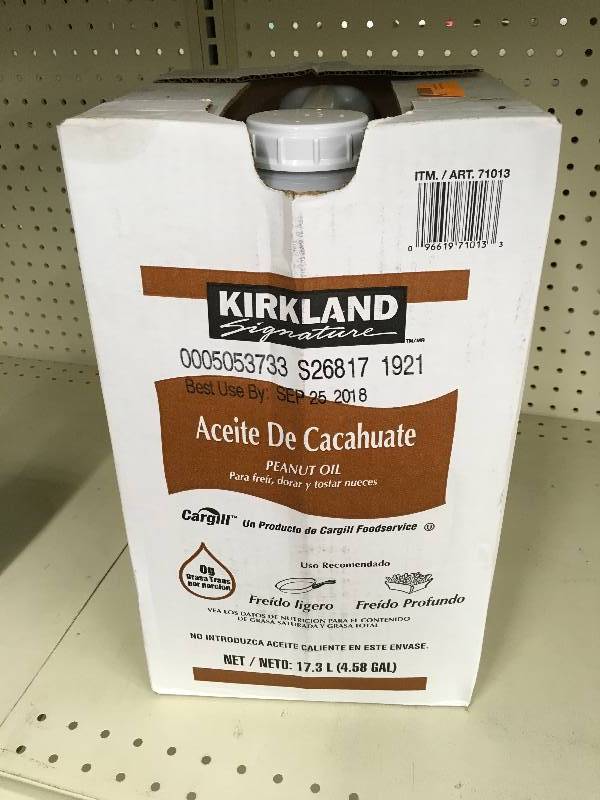
Credit: www.k-bid.com
Consumer Feedback And Market Reception
When it comes to cooking oils, consumer opinions matter greatly. Kirkland Peanut Oil has been on the market for a while and has garnered user feedback. Let’s dive into what consumers say and how this product stands in the competitive market.
Customer Reviews
Kirkland Peanut Oil has a loyal following. Many home cooks praise its high smoke point, which is perfect for frying and sautéing. Here is what some users have shared:
- “Fries come out crisp and golden brown.”
- “Lasts long even after multiple uses.”
- “No heavy peanut odor, a clear plus for me.”
These reviews suggest that Kirkland Peanut Oil meets the needs of cooking enthusiasts. There are more positive comments on its performance and flavor.
Market Comparison And Pricing
How does Kirkland Peanut Oil stack up against competitors? The table below offers a clear comparison:
| Brand | Volume | Price | Smoke Point |
|---|---|---|---|
| Kirkland | 2 gallons | Competitive | 450°F |
| Brand X | 1 gallon | Higher | 410°F |
| Brand Y | 1.5 gallons | Comparable | 420°F |
When looking at volume and price, Kirkland offers more value. Its market positioning is strong due to its competitive pricing and quality.
Environment And Sustainability
Today’s consumers value a product’s environmental impact as much as its quality. When reviewing Kirkland’s Peanut Oil, it’s vital to assess not just its performance in the kitchen but also its environmental and sustainability practices. Let’s examine how Kirkland addresses these important concerns.
Eco-friendly Practices
Kirkland is committed to reducing its carbon footprint in every step of its peanut oil production. The company utilizes renewable energy sources to power its facilities. It also employs sustainable farming practices to ensure that the peanuts are grown without harming the environment. These practices include:
- Using organic fertilizers
- Implementing crop rotation strategies
- Conserving water through efficient irrigation systems
Packaging And Recycling
Kirkland understands that packaging plays a large role in sustainability. The brand has made a conscious effort to use materials that are recyclable. Each bottle of Kirkland Peanut Oil comes in:
| Packaging Material | Recyclable | Reusability |
|---|---|---|
| Plastic Bottles (PET) | Yes | Moderate |
| Cardboard Boxes | Yes | High |
To encourage a closed-loop system, Kirkland includes instructions on how to properly recycle the packaging. Customers can reduce their environmental footprint further by participating in community recycling programs.
Final Verdict
We’re reaching the end of our deep dive into Kirkland Peanut Oil, and it’s time to give a final verdict. We’ve sifted through its features, usage, and customer experiences. Now, let’s summarize the takeaways.
Pros And Cons Recap
First, a quick recall of what stood out:
| Pros | Cons |
|---|---|
| High smoke point | Not for all dietary needs |
| Mild flavor | Higher cost than some oils |
| Great for frying | Maybe less available |
Is Kirkland Peanut Oil Worth It?
Weighing the pros and cons, Kirkland Peanut Oil delivers on quality and performance. Its high smoke point makes it a top choice for frying enthusiasts, and its mild flavor ensures your dishes’ taste remains true. The price might be a tad above average, yet consistent quality justifies the investment. However, individuals with special dietary needs should consider the suitability of peanut oil. Availability might be a concern, but it pays off for those who value purity in their cooking oils.
In the arena of cooking oils, Kirkland Peanut Oil earns its stripes.
Frequently Asked Questions
What’s The Best Peanut Oil?
The best peanut oil is unrefined, cold-pressed, and organic for maximum flavor and health benefits. Brands like Snappy and LouAna offer popular, high-quality options.
Is Peanut Oil Healthy Or Unhealthy?
Peanut oil can be healthy in moderation, offering beneficial monounsaturated fats, but it’s high in calories. Enjoy it as part of a balanced diet.
How Can You Tell If Peanut Oil Is Good?
Check peanut oil for clarity, a fresh nutty aroma, and the absence of rancid or off-odors. Ensure it’s not cloudy or thickened. Fresh oil should have a light, golden color without any sediment. Discard if it smells sour or unpleasant.
Is It Better To Fry In Peanut Oil Or Vegetable Oil?
Peanut oil is generally better for frying due to its higher smoke point and neutral flavor. Vegetable oil, while versatile, may break down at high frying temperatures. Choose peanut oil for a more stable frying experience.
Conclusion
Wrapping up our journey through the merits of Kirkland’s Peanut Oil, it’s clear this product stands out. Offering quality at a reasonable price, it’s a smart pick for cooking enthusiasts. From its high smoke point to its subtle flavor, it enhances kitchen operations without overshadowing dishes.
Trust Kirkland to make frying and sautéing a sheer delight.
More to Explore
- Costco Lobster Ravioli Sauce: Elevate Your Pasta Experience
- Nuts Individual Packs: Convenient Snacking for a Healthy Lifestyle
- Simply Natural Pasta Sauce: Elevate Your Meals with Fresh Flavors
- Costco Bratwurst Ingredients: Discover What’s Inside
- Master Carve Ham: The Ultimate Guide to Perfect Slices
